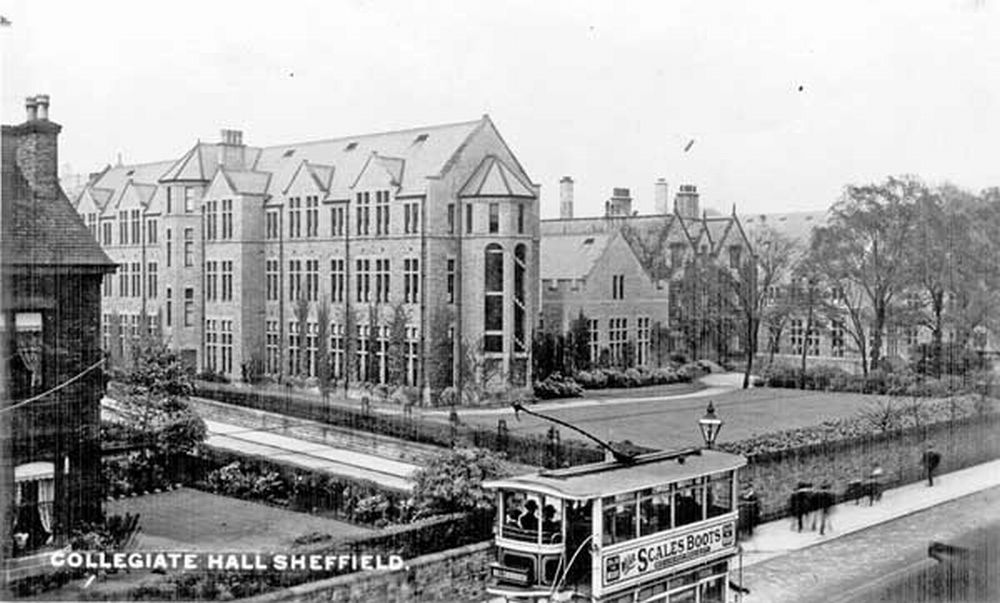In very early photographs of towns, villages and cities, something appears to be missing: there are almost never any people in them. There’s a technical reason for this. Due to the long exposure time, many individuals who walked the street were not in place long enough to make an impression. The first photograph to capture an individual – in 1838 – did so because he was having his shoes shined, and stayed still enough for the ten minutes of the exposure. Look at more recent photographs and other things come and go: very few of the shops in street photographs of even a decade or two ago survive.
Universities are different. It’s been pointed out before that universities appear to be almost uniquely long-lived – nearly all the universities of medieval Europe are still flourishing, almost the only institutions of their time which have survived. Universities need to change and develop, of course, but they also need to think about the long term, about how they will thrive and develop as the world changes around them. This, for me, is what ‘sustainability’ means – setting our thinking and action against the background of rapid change. In July, the University Leadership Team approved an updated environmental policy for the University.
The updated policy outlines our ambition to reduce our impacts in areas such as energy and water use, travel, waste, procurement, and the built and natural environment. It identifies roles and responsibilities in realising success. The policy will be followed by a delivery plan later this year to ensure we make the progress we need to make. Of course, policies can be nothing more than warm words, but this one matters in the context of our sustainability in the widest sense – the University has responsibilities, and those of us who work here have responsibilities too. The University undertakes a wide range of activities in order to deliver the services required by our students and staff. These activities all make demands on the organisation and, in many cases, the environment. Hallam has been managing those activities and environmental impacts for many years, through the maintenance of an externally accredited environmental management system (ISO 14001). Last month, Sheffield Hallam became one of only a handful of universities to achieve external accreditation to the new, 2015, version of the ISO 14001 environmental management standard – a great achievement for Katie Stead, the University’s sustainability and environmental strategy manager. We were able to successfully demonstrate that we put managing our environmental impacts at the heart of what we do, to protect the environment now and for future generations, and to be a genuinely sustainable organisation, making an impact in a positive sense.
The recent audit accreditation is important to us because it acknowledges that the University recognises the role it can play in the Sheffield region, with partners, to influence and shape the environmental impacts of our activities. It’s our aspiration to be, in the best sense of the word, a good citizen, and the University has been working with Sheffield City Council on their Green Commission report for Sheffield: we are keen to work with the City to improve the environment for residents, our employees and students, both in the short term and in the future. What this means in practice is wide ranging and often very practical. None of the University’s general waste goes to landfill, but is used to provide heat for over half our city campus buildings. Our University silver vans are electric and we are trialling hydrogen vehicles in our fleet. We are investing in measures across the estate to reduce the energy we use and we will continue to do so. Making sure that we are genuinely sustainable involves repeated planning, action and review.
In 2016, we are finalists for two EAUC green gown awards, one for our environmental and energy management systems and the improvements that have resulted from having them, and the other for Sheffield Business School and their Principles for Responsible Management in Education (PRME) programme to embed sustainability into all their teaching of future business leaders.
None of this means that we – or anyone else – has ‘cracked’ sustainability. It is one of the great challenges of our time, for individuals, organisations and societies. There is a lot more to be done, and there always will be. But it is fundamental to what we do if we are serious about being a university which seriously grapples with real world challenges. Everyone has a role to play in reducing the University’s negative impact on the environment and enhancing our positive impact. With the help of our network of Green Champions and staff involvement in wider campaigns, we can each make a difference.

Dear Chris,
This makes for positive reading and its exactly fits profile as an institution which is mindful of its international responsilities in partnership with community institutions. With this in mind it would be really encoraging to see us consider investment in electric vehicle recharging facillities to help lower the carbon footprint. as a key part of our environmental policy. The benefits are well documented and I suspect such facillities would be well utilised by students and staff. Thanks Sital Head Department of Law and Criminology,